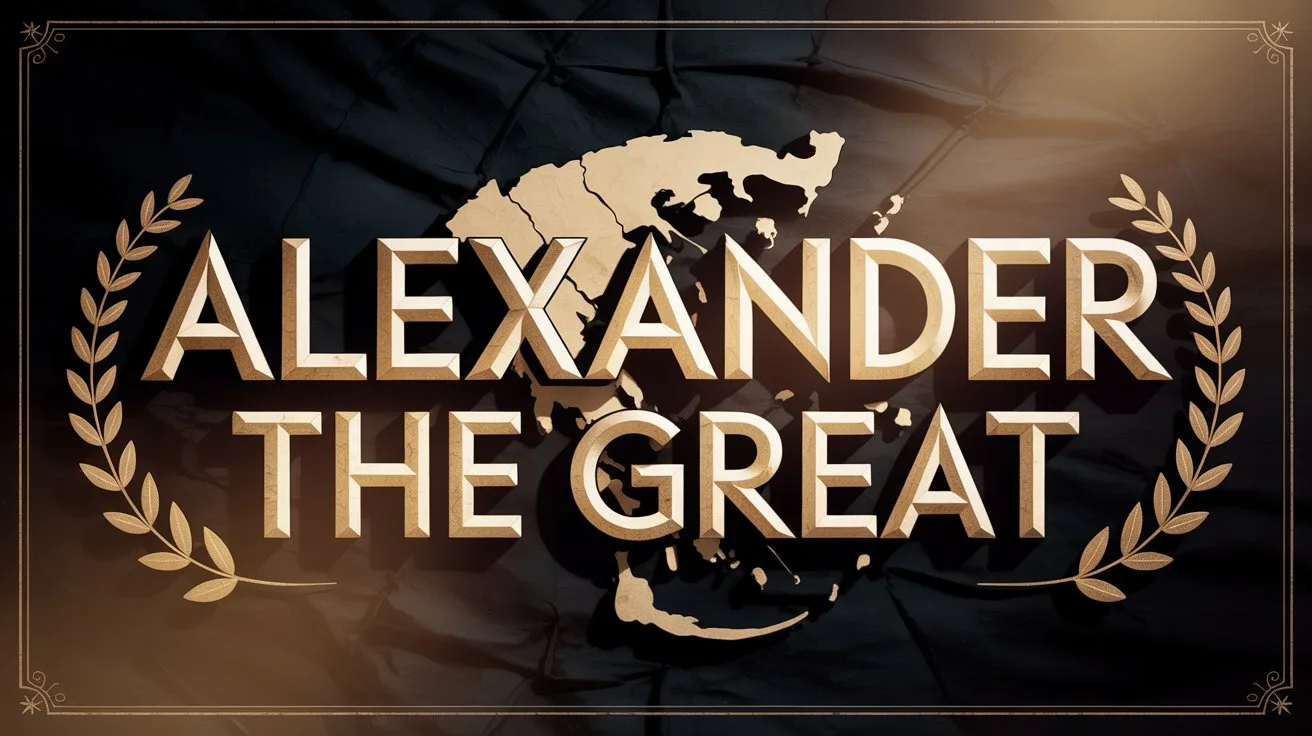Alexander the Great was one of the most influential military leaders in world history. He conquered much of the known world by the age of thirty-two. Though his name appears only a few times in Scripture, the Bible gives astonishingly accurate prophecies concerning his rise, his kingdom, and its division. This study will walk through who Alexander was, how he fits into the biblical timeline, and where Scripture refers to him directly or describes him through prophecy.
Who Was Alexander the Great?
Alexander was born in 356 B.C. in Macedonia. He was the son of King Philip II and was tutored by the philosopher Aristotle. After his father was assassinated, Alexander took the throne at the age of twenty. Within a few short years, he conquered the Persian Empire and extended his rule from Greece to Egypt and into India. He died suddenly in 323 B.C., and his empire was divided among his generals. His name does not appear in the Old Testament, but the prophecies concerning him are clear and detailed.
The Prophecies of Daniel: The Leopard and the Goat
In Daniel chapter 7, the prophet receives a vision of four beasts. Each beast represents a successive empire. The third beast is described as a leopard with four wings:
“After this I looked, and there was another, like a leopard, which had on its back four wings of a bird. The beast also had four heads, and dominion was given to it” (Daniel 7:6).
This leopard represents the Greek Empire. The speed of the leopard, with its four wings, reflects the swift conquests of Alexander. The four heads point to the eventual division of his empire after his death.
In Daniel 8, a second vision gives even greater clarity. Daniel sees a ram with two horns, which is later explained to represent the kings of Media and Persia. Then he sees a male goat:
“Then I saw a male goat coming from the west, across the surface of the whole earth, without touching the ground; and the goat had a notable horn between his eyes” (Daniel 8:5).
This goat is the kingdom of Greece. The prominent horn between its eyes is Alexander the Great. The goat does not touch the ground, symbolizing the incredible speed of his conquest. He defeats the ram, representing the Medo-Persian empire, just as Alexander did in history.
“Therefore the male goat grew very great; but when he became strong, the large horn was broken, and in place of it four notable ones came up toward the four winds of heaven” (Daniel 8:8).
Alexander died at the peak of his power. His empire did not pass to his sons, but was divided among his four generals: Cassander, Lysimachus, Seleucus, and Ptolemy. Gabriel later explains the vision to Daniel with exact detail:
“The male goat is the kingdom of Greece. The large horn that is between its eyes is the first king. As for the broken horn and the four that stood up in its place, four kingdoms shall arise out of that nation, but not with its power” (Daniel 8:21–22).
This is the clearest reference to Alexander the Great in Scripture. The language is symbolic, but the identity is unmistakable. His power, his rapid rise, and the fourfold division of his empire were all foretold centuries before they occurred.
The Spread of Greek Culture and Language
Alexander’s conquests unified much of the known world under one culture and one language. This had lasting effects on the world into which Jesus was born. Greek became the common language across many nations. The New Testament was written in Greek, and the Septuagint, the Greek translation of the Hebrew Scriptures, was already widely used by the time of Christ. Though not directly prophesied, the cultural and linguistic unity that Alexander created helped prepare the way for the Gospel to spread quickly and clearly.
God Over Kingdoms
The most powerful truth about Alexander in Scripture is not the military success he achieved, but the way God foretold and governed his rise and fall. Daniel’s visions prove that God is not merely watching history unfold; He ordains it. He reveals it. And He is never caught off guard.
“For wisdom and might are His. And He changes the times and the seasons; He removes kings and raises up kings…” (Daniel 2:20–21).
Alexander rose quickly, ruled greatly, and died suddenly. But behind it all, the God of heaven was moving His plan forward. Every earthly kingdom is temporary. The kingdom of God is eternal.
My Final Thoughts
Alexander the Great is not mentioned by name in the Bible, but he is clearly described through prophecy. Daniel foresaw his rapid rise, his defeat of Persia, and the division of his empire. These were not vague predictions; they were precise revelations from God. Even the greatest empires of man are under divine authority. God used Alexander’s rule to shape the world in ways that would later serve the Gospel.
Alexander conquered nations, but he could not conquer time. He died young and his empire scattered. But God’s Word remains sure. His kingdom endures. And through prophecy, we see that no ruler stands outside His hand.
“The Most High rules in the kingdom of men, and gives it to whomever He chooses” (Daniel 4:17).





 Get the book that teaches you how to evangelize and disarm doctrines from every single major cult group today.
Get the book that teaches you how to evangelize and disarm doctrines from every single major cult group today.